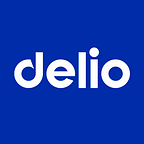“Securing the legal status of digital assets, accelerating the growth of DeFi”
- Capital Market Research Institute publishes a report on the growth of the DeFi market and its implications.
- DeFi 75 times increase in 1 year… Impact of global digital asset regulations.
- “Blockchain technical limitations and regulatory uncertainties need to be resolved.”
[Financial News] Research institutes analyzed that the growth of decentralized finance (De-Fi) services, which has grown 75 times the size of the market over the past year, has been recognized by global regulators and governments for their legal status on digital assets.
It is interpreted that the concept of digital assets used in DeFi is becoming unified around the world, and the DeFi market was able to grow rapidly as digital asset regulations were established for each country.
On the 29th, Senior Researcher Hong Ji-yeon of the Capital Market Research Institute said in the recently published ‘Growth and Implications of the DeFi Market’, “The growth of the DeFi market expands the utilization of digital assets and grants legal status to digital assets of global regulators and governments It is due to” he/she interpreted.
As a starting point, Senior Researcher Hong heard that the Financial Action Task Force (FATF) used the unified term “Digital Asset” in February 2019. After discussions that began in 2018, FATF unified ‘electronically transactable and transferable assets’ as digital assets, and in Korea, the ‘Special Act (Act on Reporting and Use of Specific Financial Transaction Information, etc.)’ was revised last year. Digital assets have been defined in the same sense.
Subsequently, in June 2019, the FATF prepared a recommendation on the regulation of digital assets, which should be observed by businesses operating digital asset businesses such as digital asset operators, anti-money laundering (AML), and travel rules (identifying information on digital asset sender and receiver of digital asset operators). The Hong Kong Securities and Futures Commission (SFC), which accepted the recommendation, launched the ‘Digital Real Estate Trading Platform Regulation’ in November of the same year, and began to formulate policies for the digital asset business.
In addition, the definition of digital assets presented by the International Financial Reporting Standards (IFRS) Interpretation Committee also contributed to securing the legal status of digital assets. IFRS discussed how to apply IFRS standards for holding digital assets at a meeting held in London in June 2019 and concluded that digital assets should be classified as intangible assets or inventories rather than currency or financial assets.
In response, the report said, “As the number of companies’ purchases of digital assets increased, discussions on how to account for digital assets were in progress. As a result, digital assets are stipulated to be accounted for as intangible assets or inventory assets.” It was analyzed that the growth of the entire DeFi market was accelerated by the expectations of the incorporation of institutional rights following the purchase of digital assets by companies.”
‘Klay Station’ service where you can deposit Kakao digital asset Klay and get interest rewards. /Source: Klay Station
According to the report, the total amount of DeFi deposits as of this month was $41.8 billion, up 7300% from $560 million in the same month of the previous year. The number of net active wallets for DeFi has more than doubled in six months from 20,000 in August last year to 420,000 in this month.
Among DeFi, the most actively used service sector is lending, which accounts for 50% of the total. As for the digital asset loan service, Maker Dao and Compound are representative, and they issue stablecoins (value-stabilizing currency) such as DAI as collateral with digital assets as loans. In addition, deposit interest services, decentralized exchanges (DEX), asset management, and derivatives are becoming more diversified.
The report said, “The current DeFi service share is largely occupied by overseas platforms, and related services have gradually started in Korea from 2019.” In addition, big tech companies such as Kakao and Naver are also trying to expand into the DeFi business through a subsidiary in charge of blockchain.”
On the other hand, the technical limitations, security issues, and regulatory uncertainties of the open blockchain were cited as obstacles to the settlement of DeFi. It is pointed out that the larger the number of transactions, the slower the blockchain transaction processing speed, and that there is a problem in which the responsibility for security and operation is unclear depending on the decentralized system called the blockchain. In addition, the error caused by the overlapping of smart contracts (conditional automatic contracts) raised as a problem by the Federal Reserve Board (FRB) was also presented as a DeFi vulnerability.
The report said, “There are clearly risks behind DeFi’s positive outlook that it can efficiently provide various financial services without intermediaries.” It is suggested that there is a need to prepare applicable institutional measures such as strengthening supervision and regulation of Korea.”
#Blockchain #DeFi #Virtual Asset #Capital Market Research Institute
Reporter Sora Kim at srk@fnnews.com
[Delio Official Websites]
Homepage : http://www.delio.io
Twitter : https://twitter.com/happydelio
Linkedin : https://www.linkedin.com/company/happydelio/
Facebook : https://www.facebook.com/delio.global/
Medium [Global]: https://delio-io.medium.com/
Instagram: https://www.instagram.com/happydelio
Blog [KR]: http://blog.delio.io
YouTube: https://www.youtube.com/channel/UCDvdHl0t9GEcUfWclJEnDXA
